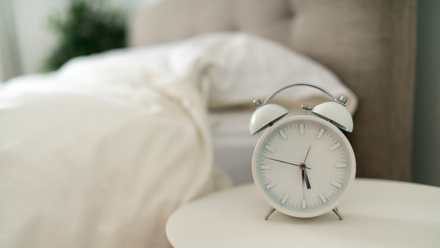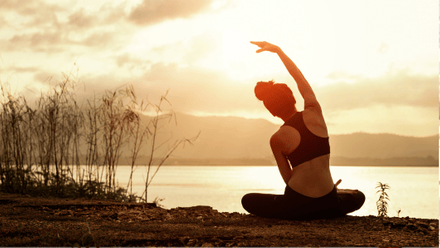Prioritising physical activity - easy ways to fit movement & exercise into your busy schedule.
Working in early education and care, brings about a lot of physically demanding responsibilities; whether it’s cleaning up after lunch, rocking a baby for naptime or changing nappies, young children are constantly on the go... meaning we are too!
Prioritising and improving physical health is crucial for early education and care professionals to ensure all tasks are completed in the safest way possible for both you and the children in your care.
In this article we will share simple daily habits and ways to support your wellbeing, through physical activity that will help you to look after yourself and support the children in your care. We will also consider different forms of physical activity, the importance of resting and recovery, as well as inclusive participation for everyone.
The importance of looking after your body
We are all aware of the importance of physical activity in children’s all-round development, enabling them to pursue happy, healthy and active lives. Our roles in early education and care are often physically demanding and require us to be active, responsive and attentive. It is therefore equally important for us to take care of and prioritise our own physical health.
Definition of physical activity
The World Health Organisation defines physical activity as
Any bodily movement produced by skeletal muscles that requires energy expenditure. Physical activity refers to all movement including during leisure time, for transport to get to and from places, or as part of a person’s work or domestic activities.
For early education and care professionals, taking care of physical health is fundamental to maintain a positive work-life balance and to provide quality care for children.
For most of us, physical activity is an accessible way to take greater personal responsibility for looking after your body. Being aware of your physical needs and knowing when to make changes, allows you to function optimally and can benefit other areas of your life.
Small daily habits for big wellbeing gains
Different forms of physical activity
There are many different forms of physical activity that can all have a wide range of benefits for your body and overall physical and mental health.,
Starting your day with a simple stretching routine loosens up your muscles and prepares your body for the day ahead. Taking short breaks throughout the day to stretch, especially focusing on your neck, shoulders, back and legs helps prevent muscle stiffness and reduce the risk of injury.
Keeping yourself active can be as easy as taking advantage of opportunities to move around more whilst working with the children, for example joining in with their physical, outdoor games or dancing with them to some music. It could also be more intentional, making a special effort to engage in particular physical activity sessions that might use different equipment, such as cycling, sports, swimming or weight training.
Yoga and Pilates are effective practices to improve flexibility, balance, strength, posture and alignment, which are all essential skills for overall physical health. These specialised sessions provide many benefits for mental health and overall wellbeing and can be particularly beneficial for rehabilitation after sustaining an injury or where a physical weakness exists.
Exercises that promote muscular strength and flexibility can be particularly beneficial for anybody working directly with young children. Engaging in strength training exercises that focus on the core, back and legs helps to build muscle and protect against risk of injury. This is especially relevant in a role that requires regularly lifting children or heavy objects.
These guidelines suggest how much time we should aim to engage in physical activity, with recommendations to try to participate in some type of physical exercise each day using a combination of moderate to high intensity activity through your week.
Remembering rest and recovery
What can often be overlooked in our busy lives is the requirement for the body to experience regular states of rest and relaxation. When we are fully rested, we gain a wide range of physical, mental and emotional benefits. It is useful to identify what helps you to rest, whether that is mindfulness & meditation, a massage, reading a book, listening to music, being in nature or the need for extra sleep.
Aim to engage in a variety of physical activities, whilst also ensuring regular breaks for rest, to allow your body to regain strength for optimum performance in your work and home life.
Physcial wellbeing with a disability
Physical activity can come with additional barriers for those of us who are disabled, where social perceptions, accessibility to services and the ongoing impact of COVID-19 all pose additional considerations for participating in physical activity and sport. For those of us who are able, engagement with physical activity is not only beneficial for our physical health but also our social and emotional wellbeing, contributing to feeling included and valued, as well as its links to reduced feelings of anxiety and depression.
The Activity Alliance Annual Disability and Activity Survey report for 2023-24
Shows disabled people are twice as likely to be inactive than non-disabled people, a disparity that has remained consistent since the first report was released five years ago
Recommendations are that disabled people build up the frequency of physical activity before raising the intensity level. An easy does it approach is more sensible especially if there has been little activity and existing health conditions exist. But, the playing field isn’t always equal when it comes to participation in physical activity as a disabled person. Have a look at Sense’s information, advice and guidance on getting involved.
Be proactive
You are the expert of your own body and general prescriptions for physical health are not necessarily ‘one size fits all’. Your body is always communicating with you. Take notice of when you feel out of balance, pay attention to what it is you need and ensure you give this to yourself.
If you have any existing medical conditions or notice a change in your physical wellbeing, do not hesitate to consult a medical professional.
Physical activity is just one aspect of physical health but being pro-active in taking steps to prioritise your physical health, ensures you have the strength, energy and resilience needed to benefit your own wellbeing, not just in a professional capacity, but in all areas of your life.
Visit our Healthy Lifestyles partner Spectrum.Life to access live and recorded classes in the digital gym.
Additional references
Help for early years providers : Early years practitioner wellbeing support (education.gov.uk)




